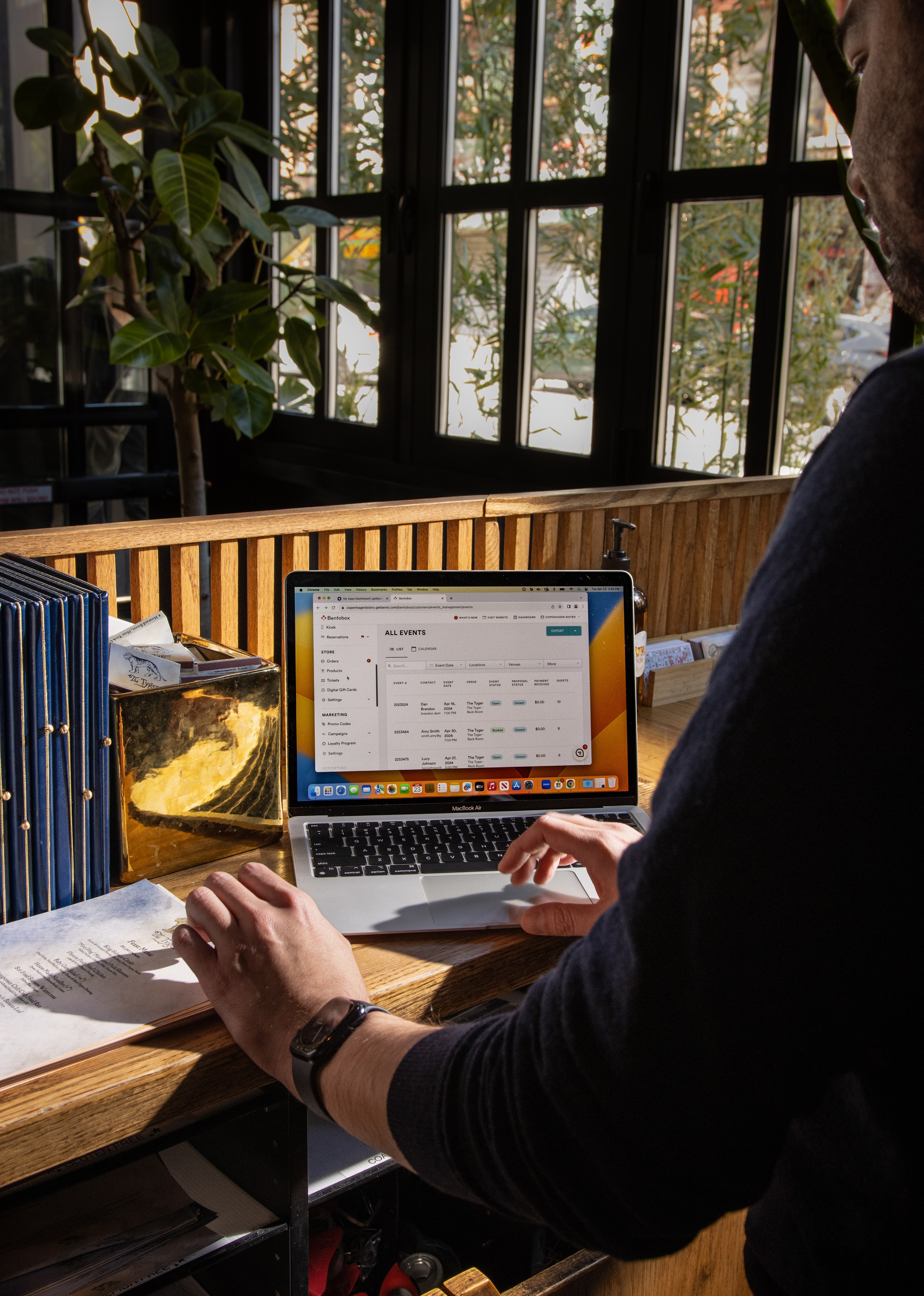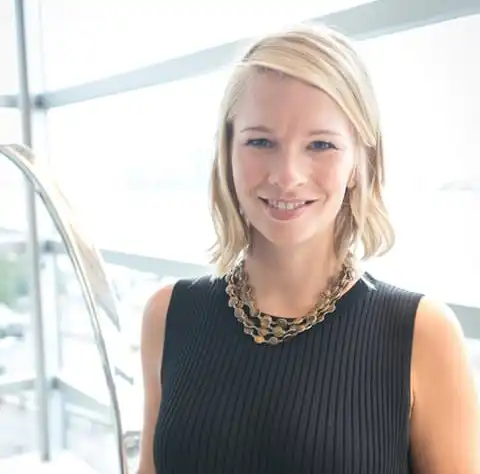Interview
Q&A: Lauren Hobbs of Union Square Hospitality Group
February 8, 2017
Why Danny Meyer’s restaurant group loves BentoBox templates
Getting a beautiful restaurant website at a low cost isn’t always easy. But when you choose BentoBox, you’re choosing a company built for hospitality—meaning that we give you options for all of your needs. Over 95% of restaurants on BentoBox opt for a personalized hospitality template for their website.
There’s a lot that goes into the decision between a custom or template website, so we talked to the Marketing Director of Union Square Hospitality Group, Lauren Hobbs, to get her take on why Danny Meyer’s legendary restaurant group chose to switch to template websites.
Tell us about how USHG websites were built and updated prior to Bento?
We used a variety of different agencies. We had a few CMS platforms built into each site, so our PR and Marketing managers had to learn how to use different back-ends to update the websites.
What were your outstanding needs and/or frustrations prior to BentoBox?
Most of the agencies we worked with hadn’t done a ton of restaurant websites before so they didn’t have a basic sense of restaurant website architecture and lacked understanding around budgets for restaurants.
Something that BentoBox has always brought is a high level of customer service and an understanding of how restaurant operators work. You guys have the willingness to go the extra mile and make small changes.
After getting introduced to BentoBox through a mutual contact, why did you decide to switch to using it?
I was really new to my job, so I was assessing what was going on in the industry. Krystle and I met one on one, and then we had a team meeting a few weeks later. I think everyone’s minds were blown at how much more simple it could be.
Simplicity and cost were the biggest factors—they were wildly different than what we had been doing. We almost immediately started working with you guys.
North End Grill was the first concept that decided to take advantage of BentoBox's templates. How was that decision made?
What happened, and why we started switching the backend of almost every website, was that, inevitably, there would come a time where something would break on the original agency site. The agency that built it became an expensive way of fixing small things. Once enough issues amassed, it was almost always more cost effective to switch to Bento and not have the ongoing hourly rates.
So when we switched to a template for North End Grill, we realized that it was much more streamlined and simple, and that a template could look and feel great. So we made a really quick switch.
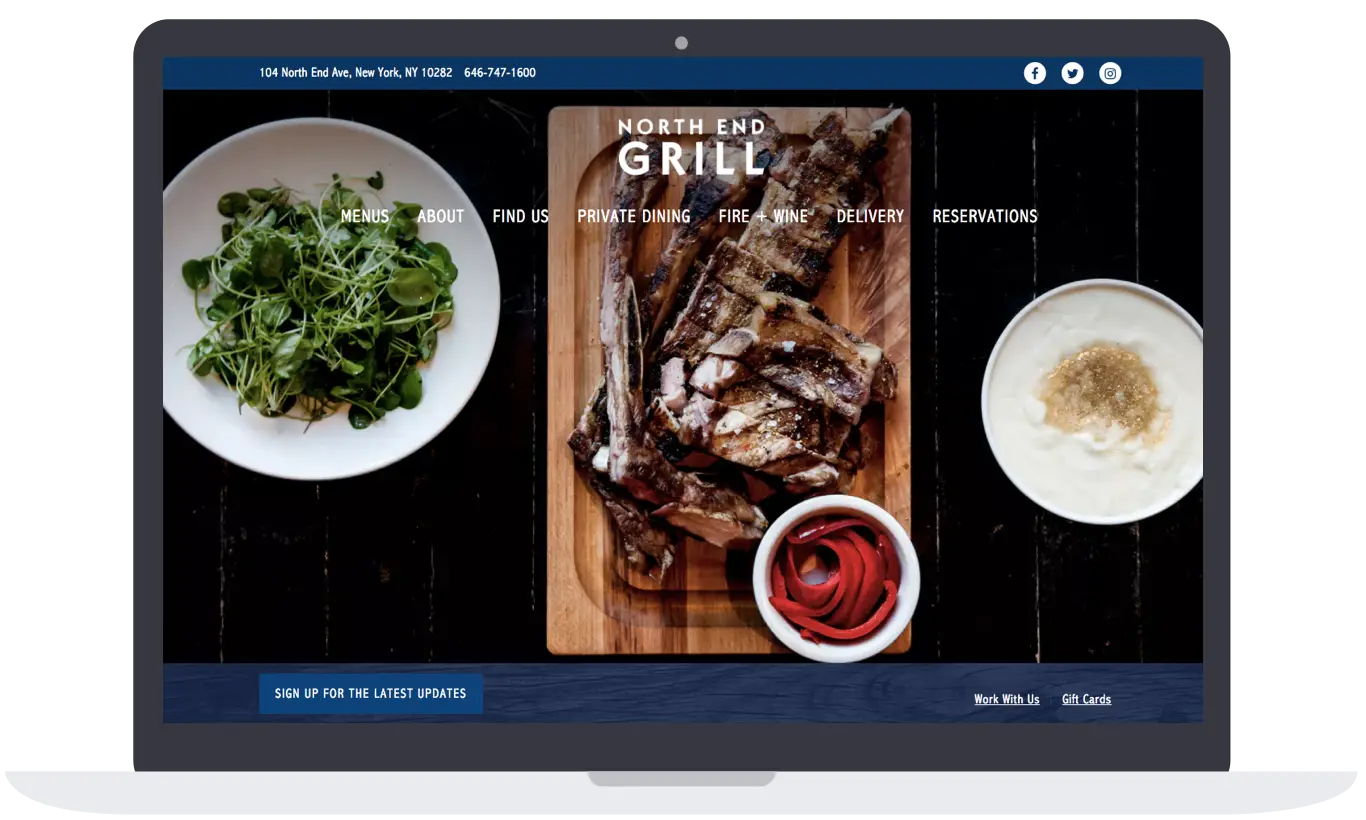
After working on many restaurant websites that have been custom made, what were some of the biggest factors that influenced your decision to start using templates?
Cost and ease. Also, once we saw a few different versions of the templates, we realized that no one would have to know it’s a template. It looks like a perfectly beautiful, simple site with everything we needed in it.
Was time to set up the website (a template is faster to build) a factor?
Time is definitely a factor. We’re always looking for ways to make things faster and leaner. And not reinventing the wheel. A restaurant is a restaurant. The content changes, but the idea of what we need doesn’t change that tremendously.
Have you noticed any differences with the longevity of the site?
Yes. Just being able to have [upgrades] happen automatically or in tandem with us has been huge, rather than us having to reach out or pay an hourly fee.
Are there any cons to templates?
I think that if there’s naturally a more complicated website, like Blue Smoke, we’ve come to a place where we probably can’t shift it to a template because there are multiple locations. But there’s not much else I can think of.
We are pushing all of our new concepts towards a template solution. Somebody would have to make a hard case about why they would want to spend 15 times more than what we’re spending.
What are some common misconceptions about working with templates?
I think that every brand and every business thinks that they are unique—and they are. They still can be unique with templates. I think that it’s true what Bento wrote about—spending money on photography and the brand itself is so much more important than spending a lot of money on the architecture of the site. That's where you can put your resources to stand out.
Recommended
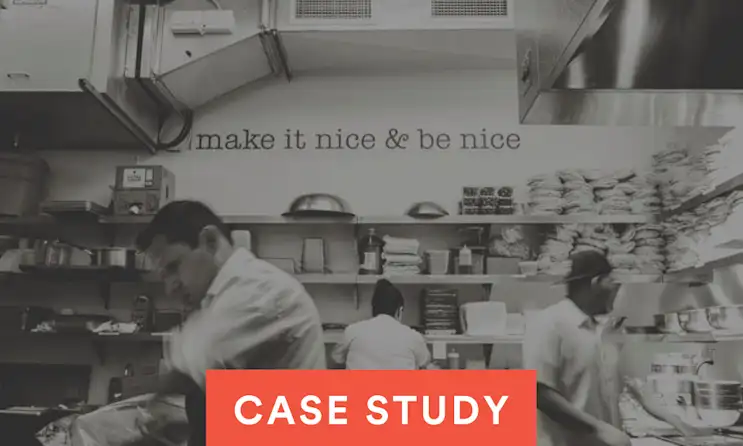
Interview
Q&A with Charles Bililies of Souvla
December 8, 2016
The founder & CEO of the San Francisco fine-casual restaurant on tech in the hospitality industry
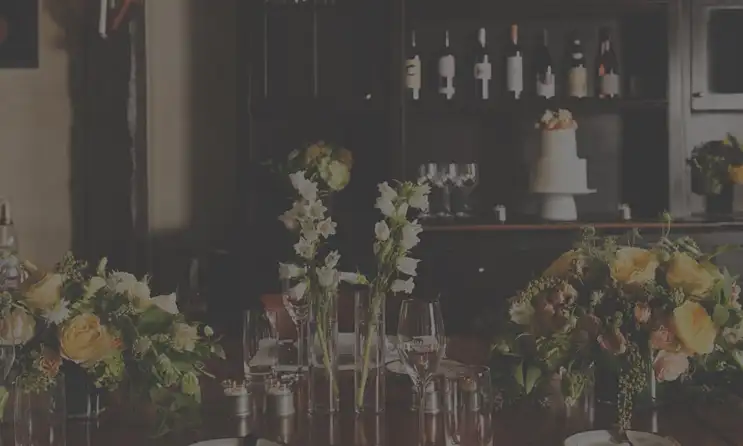
Interview
How To Run Great Private Events During the Holidays
November 18, 2016
The pros from Union Square Hospitality Group on how to ensure great private event service during a busy season
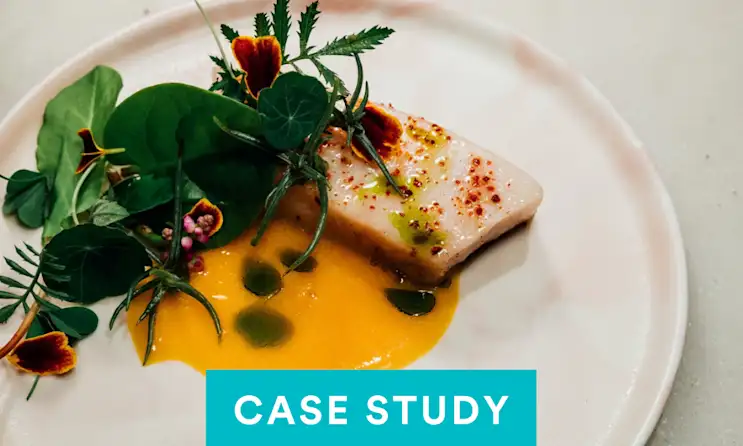
Interview
Q&A with Sunday in Brooklyn on Community, Tech and More
November 14, 2016
The restaurant making a business out of their ideal day off
